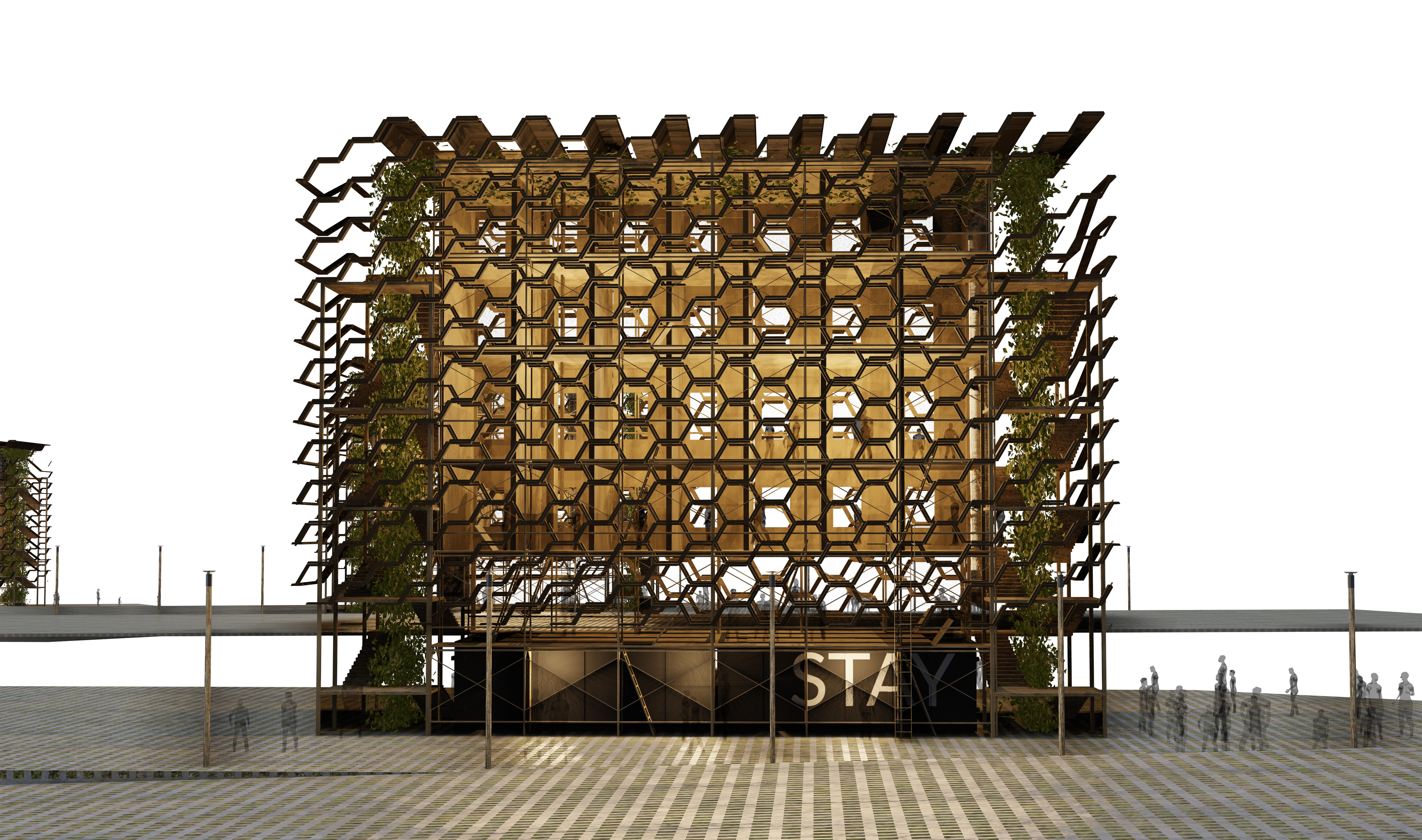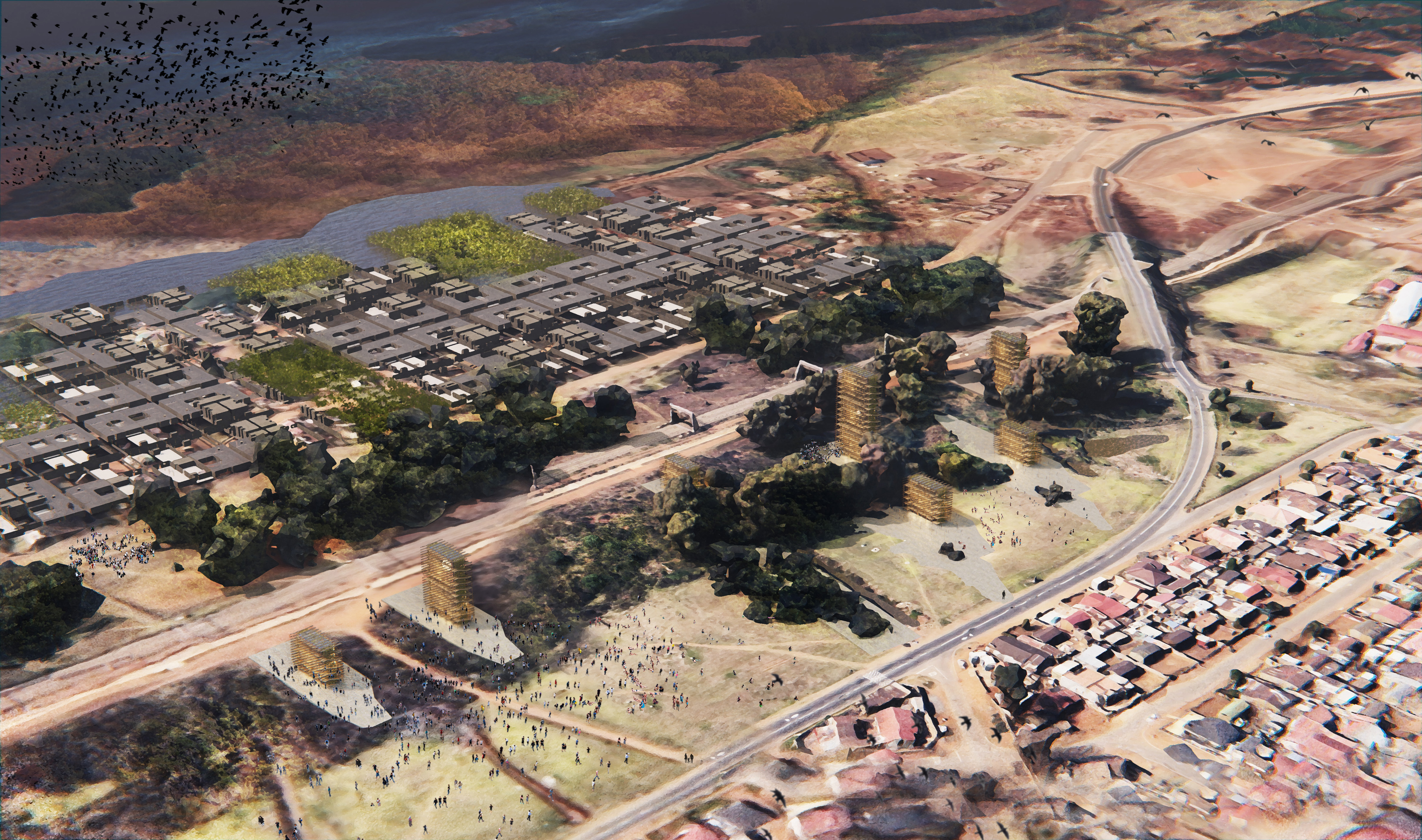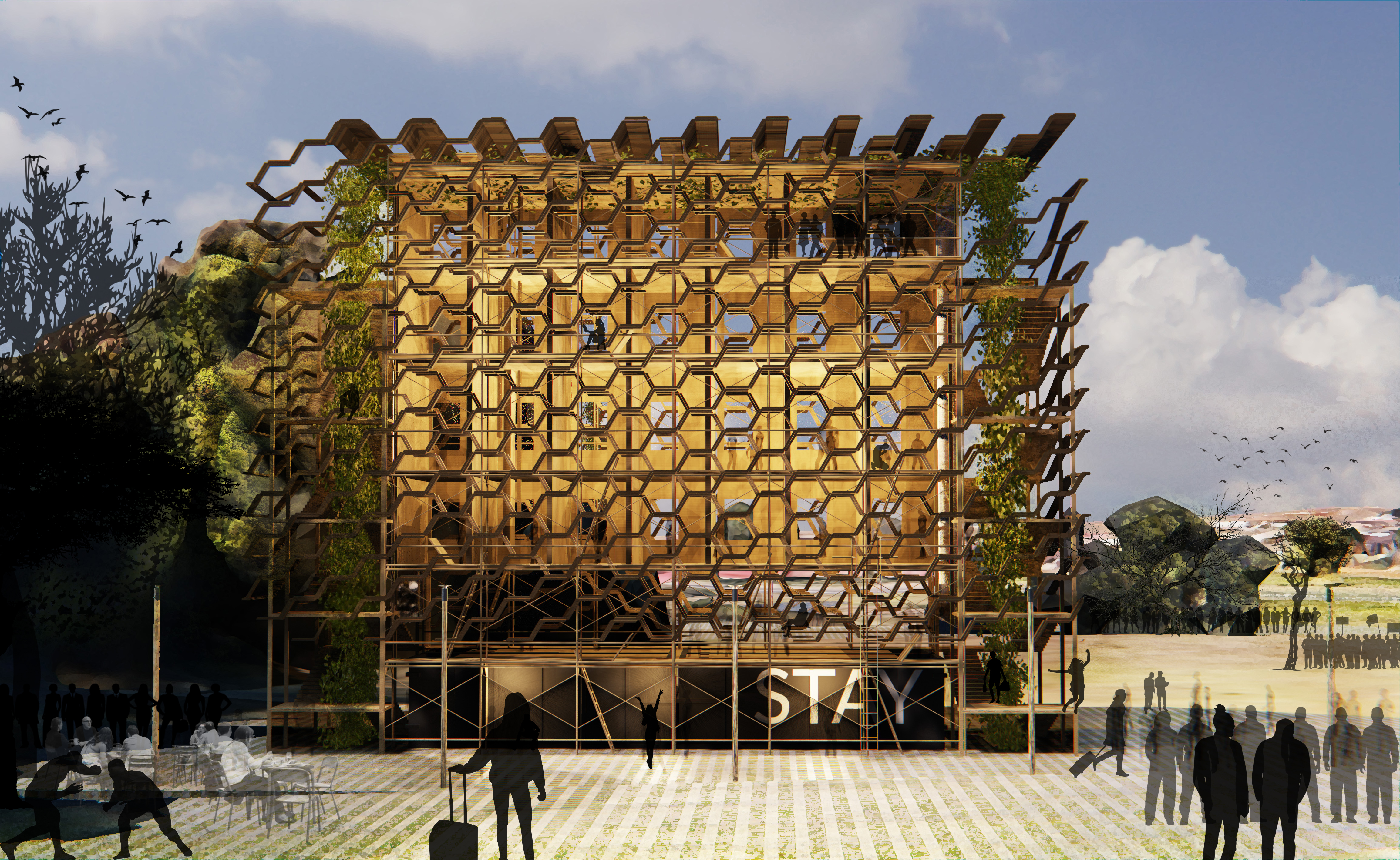EMERGENCY HOUSING
Katlehong
Ekurhuleni
2020
Katlehong
Ekurhuleni
2020
The world is changing. The need for emergency housing and temporary accommodations
is growing. Natural disasters, floods, and an influx of economic or climate
migrants are all contributing to this need, and there is a need for more
effective and efficient implementation of programmes that can provide these
benefits. We propose our 3N Eco-Village as an affordable option for people who cannot afford the high rent in the city and an effective solution
for those in need of temporary housing during natural disasters or other
events.




Open space systems straddled between residential quarters and river systems can be activated with bee farming, eco-tourism, short-term housing infrastructure, and indigenous reforestation. These systems are located in urban areas where they can be easily accessed by residents. They are also close to rivers and streams that can be used for watering the plants and keeping them cool during the hot summer months. The space underneath the structures provides a place for people to live while they wait for permanent housing to become available or while they are waiting on other types of temporary housing programs to begin.



As the world's population grows, so does its need for resources. The demand for water is growing at a rate of 1% every year, and this trend is expected to continue as global temperatures increase and rainfall patterns shift. This has led to a decline in water availability in many areas, which can have detrimental long-term implications for affected communities. In addition, climate change intersects with the growth of informal settlements on city margins, exacerbating low living standards, limited water and sanitation access, and ecosystem degradation.
In the future, we will live in eco-villages designed to conserve natural resources, minimise our carbon footprint, and maximise our health and happiness. Eco-villages will provide energy-efficient housing with wide-ranging tangible day-to-day health, environmental, education and nutritional benefits for individuals, households and communities. Eco enterprise models, rural and urban reforestation programmes, an energy efficiency programme, eco bee systems and ICT systems will be set up as support programmes. Considerable resources will be assigned to transformative gender-driven programmes supporting the social development of micro-farming enterprises.
 AEDI is dedicated to building sustainable, circular
buildings that are replicable and ready-to-implement design- and building
solutions for temporary infrastructure needs. We believe that the future of
housing lies in sustainable, circular buildings, and our goal is to help
communities create their own circular building solutions in a few weeks. Our
designs can be adapted to various use cases, such as emergency housing or
student housing.
AEDI is dedicated to building sustainable, circular
buildings that are replicable and ready-to-implement design- and building
solutions for temporary infrastructure needs. We believe that the future of
housing lies in sustainable, circular buildings, and our goal is to help
communities create their own circular building solutions in a few weeks. Our
designs can be adapted to various use cases, such as emergency housing or
student housing.Temporary, disassemblable housing is a temporary solution with the strength and characteristics of permanent structures. It provides a cost-effective way to get people out of emergencies and into more permanent housing. The client's asset portfolio's carbon footprint is also reduced through optimised resource usage and energy consumption through both material and building circularity. The design process for temporary housing should be circular, starting with a needs assessment and ending with the refurbishment or recycling of any materials used to construct these homes.
In the face of the latest housing crisis, we have to be more innovative than ever. We believe that temporary housing can be just as good as permanent housing. Our Eco Village proposal is designed for long-term use but adaptable to changing needs and circumstances. We're dedicated to using sustainable building practices and materials in our construction, so we can help you create a building that performs as well as a permanent structure—but without all of the expensive materials or waste. Our plan approval includes extensions to building compliance certificates, risk management, and legal issues as stipulated by Town Planning Scheme; these extensions allow us to extend your building cycle on demand!


New housing developments should encourage urban densification.As the population of cities grows, it is becoming increasingly important that new developments are designed to encourage urban densification. This is for a variety of reasons: firstly, it means that more people can be accommodated within the same amount of space; secondly, it provides an opportunity for the formalisation of informal settlements; and thirdly, it allows for the construction of temporary housing which can then be used as a starting point for permanent housing in future. Temporary, modular and safe housing solutions need to be provided in areas where there is no formal infrastructure. These types of accommodation provide a low-cost solution which can be expanded or re-used in future when more permanent structures are put in place.
We believe that if you want to make a difference, you must do something different.
AEDI is exploring sustainable, modular construction solutions. We are committed to using the best materials and practices available—we prioritise the need for sustainable buildings with basic services like a green star or similar green-label products. Our goal is to provide sustainable solutions that can be employed in areas of demand, i.e. emergency housing for flood victims. The communities we serve align with our development strategy, where facilities are created based on recommendations by client stakeholders. We aim to provide acceptable building product that limits water and natural resource use while providing quality homes for people who need them most.
We know that women and children are often the hardest hit by natural disasters and need affordable and environmentally friendly options. 3N aims to provide those options by providing temporary housing in an eco-village environment that can be extended over time. This means that families will have a place to live and thrive while they recover from the disaster, but their homes can also be expanded as their economic situation improves. So we're helping them cope with the current crisis and setting them up for long-term success!
TRANSITION DESIGN
AEDI STUDIO BERLIN, JOHANNESBURG.
AEDI STUDIO BERLIN, JOHANNESBURG.